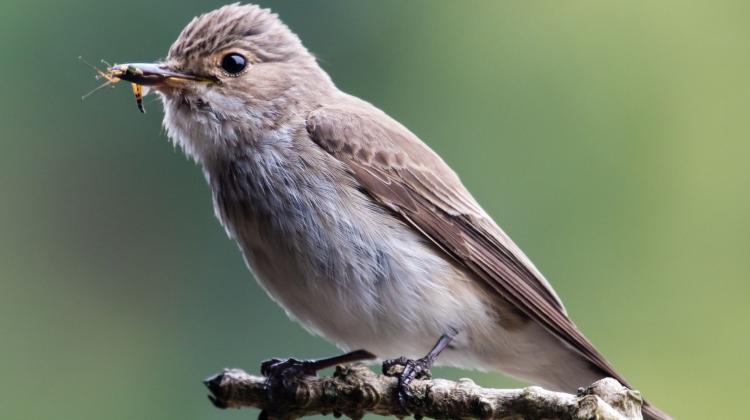Animals not able to keep up with adaptation to climate change
 Photo: Fotolia
Photo: Fotolia
While some species adapt their life cycles to climate change, this happens too slowly to ensure that populations survive in the long run. The risk also concerns birds such as magpie, murre or sparrow.
The pace of climate change is faster than the rate at which many species are able to adapt, the authors of meta-analyses presented in the latest "Nature Communications" say. The team of 64 experts from 18 countries was led by Viktoria Radchuk from the Leibniz Institute for the Zoo and Wildlife Research (Leibniz-IZW). One of the co-author of the study is a zoologist from the University of Life Sciences in Poznań, Prof. Piotr Tryjanowski.
Different animal species react in different ways to climate changes, for example higher temperatures or rainfall changes. Animals and plants can change the range of their occurrence, such as crymophilic species that move towards the poles or upwards (if the terrain allows it). The time of breeding and raising offspring may also change, as well as the time of seasonal migrations or falling into a winter sleep. Behaviours of this type are closely related to the conditions prevailing in the environment. Changing one forces changing the other.
To assess animal responses to climate change, scientists reviewed over 10,000 scientific publications, focusing on data from 71 of them, concerning 17 different animal species. They do not have good news: although the studied species quite often react to climate changes, they are unable to keep up with them.
"Our research focused on birds because complete data on other groups were scarce" - says lead author Viktoriia Radchuk. "We demonstrate that in temperate regions, the rising temperatures are associated with the shift of the timing of biological events to earlier dates" - she adds.
"This suggests that species can stay in their warming habitat, as long as they change fast enough to cope with climate change" - says Steven Beissinger of the University of California at Berkeley. But one of the authors of the publication, Alexandre Courtiol from Leibniz-IZW, reserves: "This is unlikely to be the case because even populations undergoing adaptive change, do so at a pace that does not guarantee their persistence". In practice, "persistent effects" mean maintaining a sufficiently large number of offspring and survival of the population.
Researchers are concerned that the analysed data mainly concern common and abundant species such as the common magpie, the great tit or the European pied flycatcher, which are known to cope with changes relatively well.
"Adaptive responses among rare or endangered species remain to be analysed. We fear that the forecasts of population persistence for such species of conservation concern will be even more pessimistic" - stresses Stephanie Kramer-Schadt, an ecologist at Leibniz-IZW.
Researchers hope that their analyses and data will stimulate research on the potential resilience of animal populations to climate change and help their future, better conservation.
The fact that the Earth is rapidly warming no longer raises any doubts. The average temperature is currently 1 degree Celsius higher compared to the time before the rapid industrial development. The main factor that causes climate change is the emission of greenhouse gases resulting from human activity.
Researchers warn that rapid climate change threatens many species of animals and plants (there are even mentions of contemporary mass extinction), whose disappearance from the surface of the Earth may affect the condition of entire ecosystems. This may have environmental, economic and health consequences.
PAP - Science in Poland
zan/ ekr/ kap/
tr. RL
Przed dodaniem komentarza prosimy o zapoznanie z Regulaminem forum serwisu Nauka w Polsce.


















